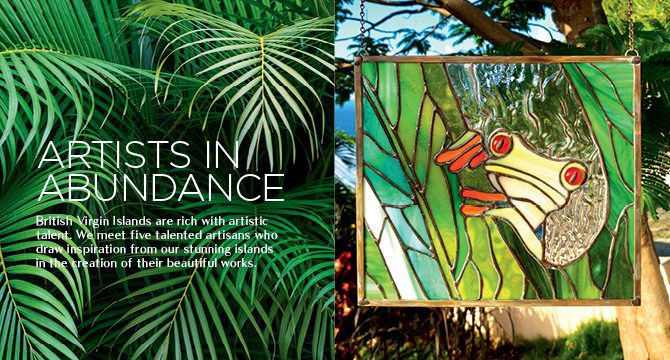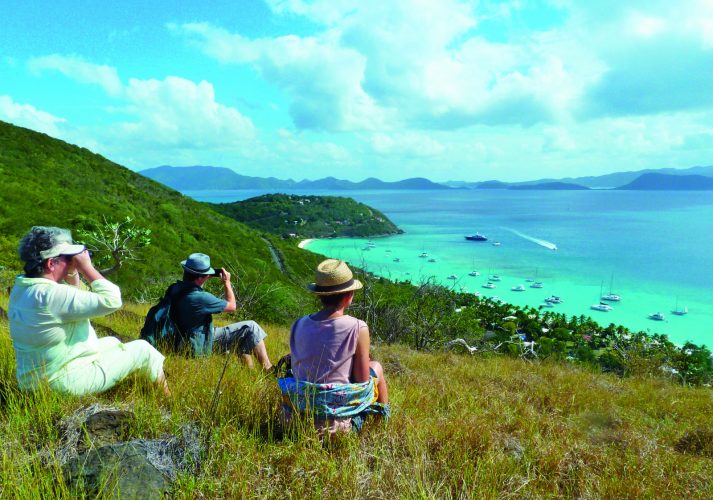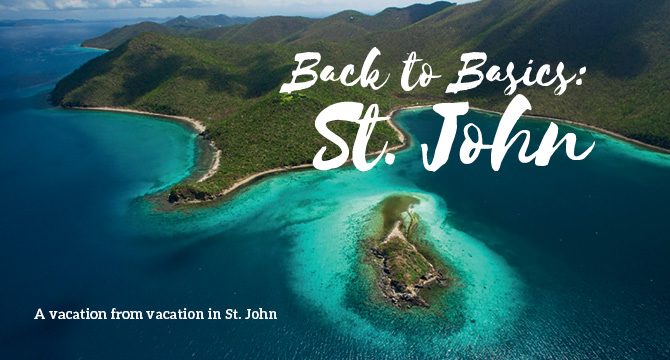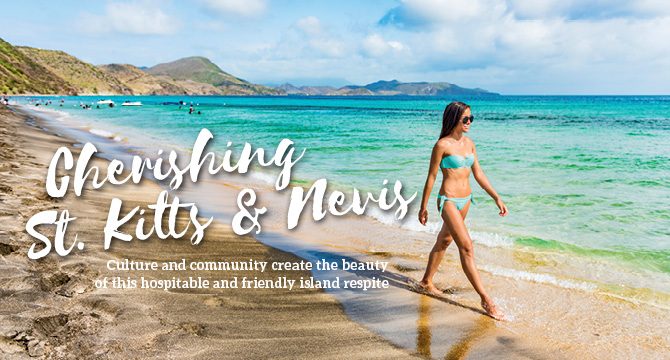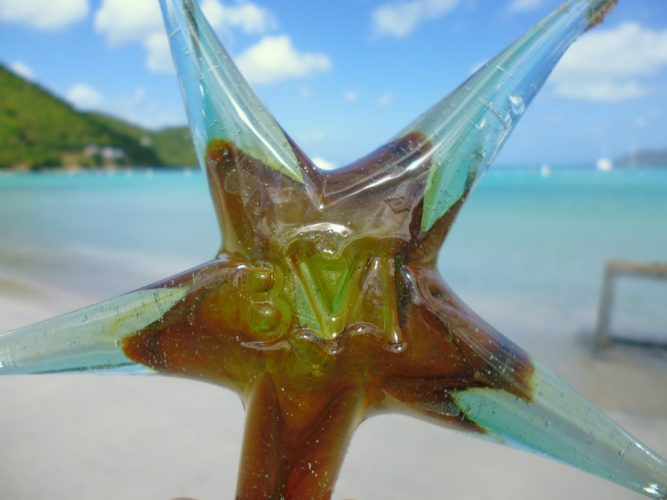Making Waves: A-PAW-s for an up and coming BVI Icon
Natasha Rusheinski (Tash), originally from Johannesburg, South Africa, grew up in a house full of animals. At one time, that house held as many as seven dogs, three cats, a parrot, a rat, and horses (outside).
“My sister is ‘crazy horse person’ now,” Tash beamed as she recalled the wildness of her childhood. This life was not lost on Tash as she always had the goal of becoming a veterinarian when she was older. “I can’t stand seeing animals in pain,” she said.
Her life’s path had different plans, however. As an adult, Tash took a job working for Deloitte as an accountant and eventually, she was hired at their BVI location. When Tash arrived on Tortola, she knew she belonged here. Her destiny to live on Tortola was not only for her benefit, but also for the British Virgin Islands as a whole.
Tash has independently identified an issue that affects tourism, health, and economic issues in our population. Further, she created a non-profit organisation that is now improving the state of the situation. Tash Rusheinski is the very definition of a person who is making the British Virgin Islands a better place to live.
Recognising the stray cat overpopulation burden on Tortola, Tash knows of the dangers this poses for the animals and the country as a whole. “One cat can breed up to 8 times a year and give birth to five kittens at a time,” she explained.
With one stray cat able to breed up to 40 cats a year, that is a remarkable drain on the supply of food to the wild cat population which will lead to starvation.
Over population of cats can also conceive feline diseases, causing illness and painful death for the animals. “Cats die a horrific death…” from some of these diseases so it is important to catch the illness early. Additionally, some less deadly health issues carried by cats can also be passed to humans. This is of concern if many stray cats roam the island and birth vast amounts of kittens.
As a peril to the British Virgin Islands in its entirety and with tourism as one of the major industries in the country, a large over population of stray cats does not bode well for return guests.
“We have had tourists take up feeding cats while they were visiting and then contact us directly before they left,” because they did not want to leave without knowing the cats were taken care of.
It is a point of reflection that visitors to our island will want to return to our beautiful space on the Earth, not only for the ocean, our kind people, and culture, but also for the kindness we show toward our wildlife.
Jumping into action, Tash formed PAW (Promoting Animal Welfare), a non-profit animal welfare organisation whose full purpose is to “…decrease the number of stray animals through spay/neutering and improving the standard of living through vaccinating against disease.”
The pioneering animal rights supporter has compiled an impressive team of volunteers and donors that trap, transport, and treat felines before releasing them back into the wild.
Trapping and transporting volunteers welcome calls from the general public with information of the whereabouts of stray cats and dogs. Following, the volunteers travel to location with crates, to non-invasively trap the animals and transport them to the veterinarian.
[one_half]
[/one_half]
[one_half]
[/one_half]
[one_half]
[/one_half]
[one_half_last]
[/one_half_last]
Working on the behalf of PAW, Dr Laura Palminteri donates some of her time for the non-profit organisation. Dr Palminteri, a well-respected Caribbean veterinarian, travels to at least four islands every week (St Croix, St John, St Thomas, and Tortola), treating privately owned pets and working her mission to help the stray animal population.
For PAW, Dr Laura tests then vaccinates each cat for Feline Leukaemia and Feline AIDS. After testing negative, the cats are spayed or neutered, left to recuperate, then released back to the place they were trapped.
Although Dr Laura has reduced her fee for the non-profit organisation, PAW still has costs associated with the treatment of the animals. The costs are paid for by means of private donations and corporate sponsors. Other donations have come in by way of community service projects, private citizens, or small businesses. Any way the donations are obtained, Tash is grateful to the community, “…ensuring we have a healthier feline population.”
As of print date, Tash and her team have exceeded their 2014 goal of treating 100 strays with a current count of 129. The team is looking for additional volunteers and financial sponsors with the goal for animals treated in 2015 at 250.
This may look like a high mountain to climb, but Tash is determined to better the lives of the animals on Tortola and better the life on Tortola itself. Tash stands out as another of the BVI’s animal welfare icons. She is an exceptional example to our youth of how to take initiative in leadership and give those who have no voice a champion to fight their cause.
[wc_divider style=”solid” line=”double” margin_top=”” margin_bottom=””]
Do you know someone making a difference in The BVI? Contact [email protected]
To contact the PAW team, for volunteer or sponsor information, please email [email protected]
Website: www.pawbvi.com
Facebook: PAW Tortola
PAW (Promoting Animal Welfare)
Executive Team:
Natasha Rusheinski
GuyP Dubois
Sylvia Estevez
Dan Boisvert
Trapper/Transporters:
Craig Hicker
Claire Chensee
Scarlett Steer
20+ others
Highlighted and Corporate Sponsors:
* All money raised goes directly to the animals
Deloitte
Maples
Caribbean Insurance Limited (CIL)
Cedar International School Grade 5 Exhibition Group, 2014
[ts_fab]







